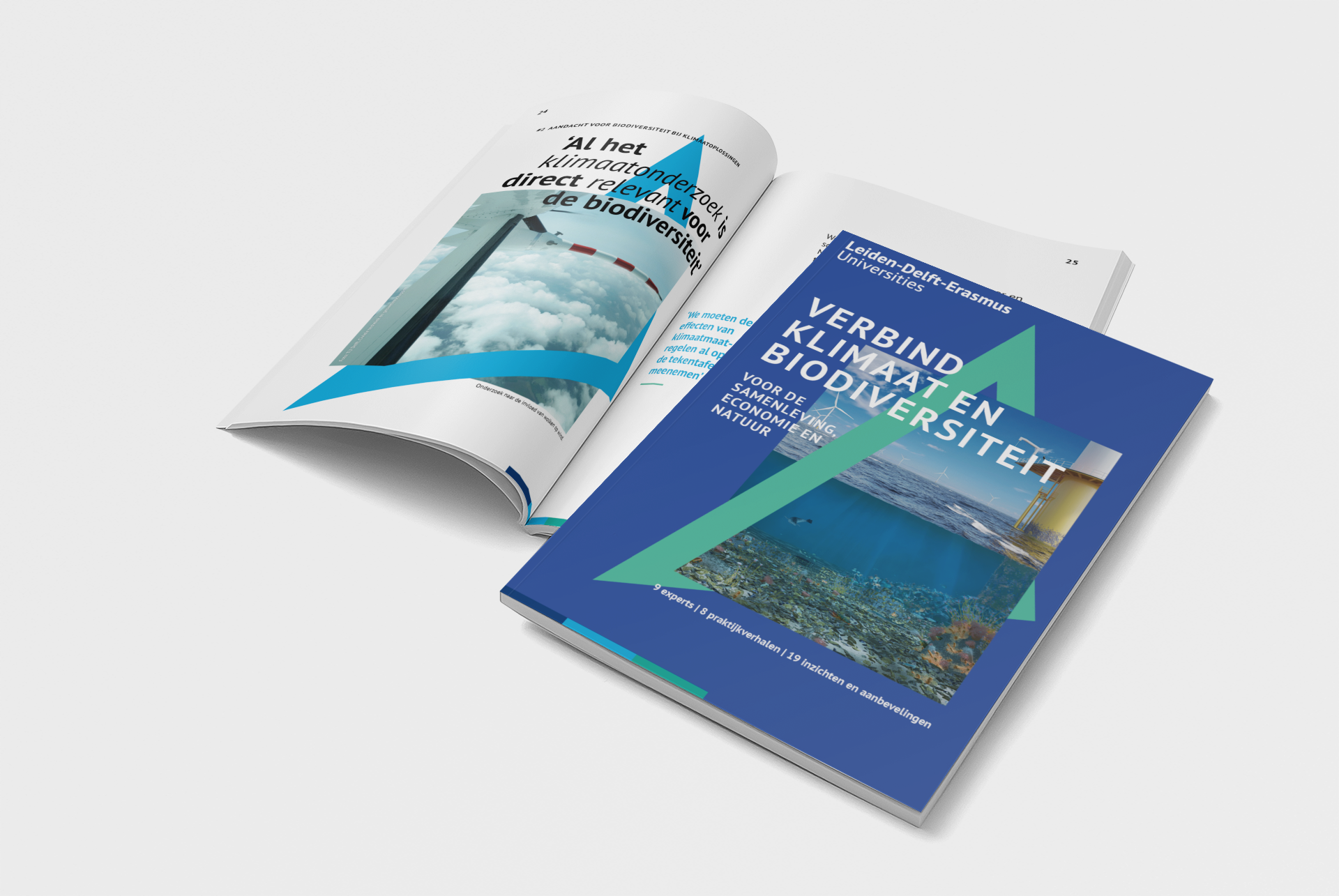
'Society would flourish with new farming styles’
‘The climate crisis is the greatest threat we face,’ says Leiden University environmental scientist Paul Behrens. ‘And yet, there is hope. In the near future, I think we will wonder why we didn’t make these changes earlier.’

Behrens is Associate Professor of Environmental Change and authored the popular science book The Best of Times, The Worst of Times: Futures from the Frontiers of Climate Science. When asked whether food production, biodiversity loss and climate change should be addressed as intertwined problems, his answers with a resolute:
‘Absolutely! About 70-80% of all arable land worldwide is used to farm animals and animal food, but these sources only provide 37% of our protein needs and 18% of our caloric needs. Even if managed to decarbonise all energy systems around the world, emissions from the food system – mainly animal agriculture – could be enough to exceed 1.5 or even 2 degrees of warming.’
Is there a way to solve these problems and create a pleasant living environment and a liveable future; a ‘thriving’ society in your words?
‘Yes, if we drastically change how we produce foods. We need a shift towards a plant-based diet and have to curb food waste, especially in high-income nations. Food transport is not a big problem, as it is responsible for only 6-10% of the food system’s total emissions.’
‘Besides, this number will only shrink as the energy transition progresses. There are good reasons for eating locally, such as being more involved with food production and supporting local farms, but climate is not really one of them.’
How can we feed the world without exceeding planetary boundaries?
‘The answer is simple: less meat, especially in high-income countries. Meat is actually artificially cheap, given that many subsidies are linked to land use and animal agriculture uses a large amount of land. ‘Subsidies should be redirected to environmental management practices such as biodiversity protection or rewilding, or used to support different crops, such as beans, peas, lentils, and other legumes.’
‘Beyond legumes, we can also look at precision fermentation to meet our protein needs, in which micro-organisms produce dairy from grass instead of caws, or even at marine protein sources such as seaweed or algae.’
Do you think that is going to happen? Governments, companies, farmers and consumers all seem unwilling to change.
‘We will be forced to change, one way or another. Either because we make the changes deemed necessary by scientific consensus or because climate change ultimately takes its toll on the agricultural system. Research suggests that the risk of crop failure due to extreme weather events is set to increase rapidly as the planet warms 1.5 or 2 degrees.’
How can governments and people be convinced that now is the time for change?
‘Twenty types of potatoes instead of four. Forgotten vegetables will return again’
‘It is a complex, multifaceted, systemic problem. It’s not like going to the moon, which comes with a set of complicated but manageable technical problems. From a systems perspective, individuals are far more connected to the food system than other systems, such as transportation. What you decide to eat has a direct impact on the options available at supermarkets and in restaurants.’
‘Research has shown that when a minority of around 10 to 40% of a population adopts a new norm, it can effect a tipping point. We may be getting closer to that tipping point with regard to plant-based diets. At the same time, incumbent interests are pushing back. Fossil fuel companies funded climate denial for decades, for example. We also need to improve how we communicate with farmers and need to help them navigate this the transition.’
‘As extreme weather events become more common, farmers will face more and more difficulties, but plant-based production and diets can help us become more resilient to those impacts. In the UK, meat has gotten relatively more expensive than vegetables in the recent spell of inflation. In the future, I think we will ask ourselves why we did not make these changes earlier.’
How would an agricultural transition change the landscape of Zuid-Holland?
‘It would offer huge opportunities for other types of land use. Without animal agriculture, which is highly inefficient, our province could have many more parks and nature reserves. Besides, the remaining farmland could also be more varied, with different crops and farming styles. This would all increase the number of choices available to people, changing the narrative from cutting out meat to exploring and enjoying plant-based alternatives. We might just have twenty types of potatoes instead of four. Forgotten vegetables will return again.’
‘The air and water would be much cleaner – we’d enjoy swimming in far more areas. It would improve our access to nature, with great benefits to our physical and mental health, as we know that spending time in nature has significant health impacts. Moreover, it would make the province more resilient to extreme weather events, because more trees and natural areas absorb storm surges and flooding. The vegetation would sequester carbon from the atmosphere in the plants and soil. Society could thrive!’
Do the universities of Leiden, Delft and Rotterdam work together on research into agriculture, food, biodiversity loss and climate change?
‘Delft is great at designing technological solutions, Erasmus specialises in the social and behavioural aspects and the institute of environmental sciences in Leiden works on industrial ecology and environmental biology. We complement each other well. I work together with colleagues from Erasmus and Delft in an honours course that focusses on sustainability challenges, such as moving to more plant-based diets.’

New white paper 'Connect Climate and Biodiversity for Society, Economy and Nature'
This article was originally published in Leiden-Delft-Erasmus Magazine. It is from the new white paper ‘Connect Climate and Biodiversity for society, economy and nature’ of Leiden-Delft-Erasmus Universities. In this paper, scientists, foresters, bankers, farmers, and municipal officials advocate protection of eco-systems as a strategy against global warming. Read the original article and download the white paper at the LDE-website.
